- Home
- Linda Lael Miller
Courting Susannah Page 13
Courting Susannah Read online
Page 13
Presently, the front door slammed, and the sound caused Aubrey to flinch.
He was still standing there, in the center of the room, when Susannah reappeared, feathers smoothed, baby bottle in hand.
“I hope you’re proud of yourself,” she said as she washed the bottle, took milk from the icebox, and poured it into a pan to heat.
Aubrey said nothing. For once in his life, he was at a loss for words.
After setting the pan of milk on the stove, stirring up the embers in the grate, and adding a chunk of firewood, Susannah turned to glare at him, arms akimbo. “Well?”
“Well, what?”
“Have you driven him away, once and for all? Your only brother?”
Aubrey thrust a hand through his hair. Ethan. His brother. What had he done? “I don’t know,” he admitted, feeling an overwhelming weariness settle over him. Then, again, “I don’t know.”
“Sit down,” Susannah said.
He sat. He’d used up the last of his fight on Ethan.
Susannah crossed to the table and began clearing away the food, removing the platter of chicken just as Aubrey reached for a thigh. He wasn’t quick enough.
“If you had any sense at all, you’d go after him,” she fumed. “Apologize. Talk this thing through, settle the matter once and for all.”
He refused to reply, mostly because he didn’t know what to say. His pride was lodged in his throat, dry and scuffed as an old boot.
She had scalded the milk in her earnestness and had to start the whole process over again. Upstairs, Victoria’s wails intensified, and in that moment, it came to Aubrey that he loved the child, whether she was his or not.
“Go and get her,” Susannah said.
He was halfway up the stairs before he realized he’d just obeyed an order. He couldn’t remember the last time he had done that.
Entering Susannah’s room, Aubrey was immediately struck by an intrinsic sense of her most private self. Her petticoat lay spilling across the foot of the bed, in intriguing disarray, and there were books, purloined from his study for the most part, piled on every surface. Her soft, unique scent teased his nostrils.
Victoria squalled, effectively regaining his attention. He went to the cradle and lifted the baby into his arms. He’d held the infant fairly often, out of necessity, but never with the certain knowledge that she was his own, whether she was his flesh and blood or not. “Hush,” he said awkwardly. “There’s a bottle brewing downstairs.” They were midway down the rear stairway when she wet on his shirt, a christening he supposed he deserved, all things considered. “Susannah,” he said.
“What?” she asked testily.
He reentered the kitchen. “She’s wet.”
“Then change her.”
“I beg your pardon?”
“You know. Take Victoria back upstairs and put a fresh diaper on her. Then bring her back down, and I’ll feed her in the rocking chair by the stove.”
“Couldn’t you—?”
“You,” Susannah said pointedly, testing the contents of the bottle on the inside of her left wrist—a place Aubrey wanted very much, all of the sudden, to kiss, “are her father.”
Aubrey sighed and did as he was told. Only after he’d presented Susannah with a clean if crotchety baby did he go to his own room to wash and change his shirt. When he returned to the kitchen again, Victoria was snuggled against Susannah’s shoulder.
“Are you asleep?” He was filled with a wild, careening sort of tenderness, seeing the woman and child in such an ancient, ordinary pose. It frightened him, how much he might come to care for them, if things progressed as they had been.
Susannah opened her eyes. “No.”
He stood with his back to the stove, pretending to warm his hands. In fact, he merely wanted to be near Susannah for a while, near his daughter. “What have you decided?” he asked quietly.
“About what?” Susannah asked, her voice very soft. Not for his sake, he knew, but for Victoria’s.
“Our getting married,” he said, surprised that she’d forgotten. He knew what Maisie had said was true; there were a great many men in Seattle who would give their last good tooth to have Susannah for a wife, Hollister included. Still, she was a spinster by her own admission, damnably fetching or not, and certainly penniless.
She patted Victoria’s tiny back rhythmically, and the baby gave a belch that would have done a lumberjack proud. “I’m going to call your bluff, as they say in the game of poker,” she said. “I won’t marry you. I’m gambling that you won’t part Victoria and me because you know she needs me.”
He stared at her. “Do you realize—?”
“How many women would like to marry you? Oh, yes. Maisie told me, and I could have guessed anyway. After all, you are very attractive—er—physically, and it certainly appears that you are more than solvent. But I fear you have no poetry in your soul, and, now that I’ve read Ethan’s verses, I know what I want from the man I marry. Romance. Passion. Steadfastness.”
“You want Ethan?” It would be a bitter irony if she did.
She smiled sleepily. “Of course not. He still loves Su Lin.”
He frowned. Who? he thought, and promptly decided to pursue the question later. “Hollister, then?”
She shook her head. “John Hollister is no more sentimental than you are, I’m afraid. Bless his soul. Anyway, he deserves a woman who truly cares for him, and while I think he is a wonderful man—”
“You needn’t extol his virtues,” Aubrey broke in. “And what makes you so da—so certain that I’m incapable of ardent emotions?”
She continued to rock, considering him appraisingly, as though he were a plucked chicken hanging in the butcher’s window or a sway-backed horse on the auction block. “If you wish to marry me, Aubrey Fairgrieve,” she had the audacity to say, “you will have to court me. As of right now, I am receiving gentleman callers.”
“Not in my house, you’re not!”
She was undaunted. “Furthermore,” she went on, as though he hadn’t spoken, “I intend to take in piano students. We discussed that, if you recall. You have been very generous, but I must have an income of my own, however modest.”
No one, not even Julia, had ever dared to flout his authority like that. And right there, under his own roof. “I could turn you out into the snow, right now—tonight,” he said mildly. Reasonably.
“Yes,” she conceded, standing slowly in order not to disturb the baby, now nodding against her bosom. “You could do that. But I’m sure Ethan would take me in. So would Mr. Hollister, I think. Or, of course, there’s always Reverend Johnstone.”
He rubbed his right temple. “All right,” he said. “All right. You can stay, for now, at least. But this other matter isn’t settled, not by any means.”
She smiled sweetly from the base of the rear stairs. “Whatever you say,” she replied, and disappeared.
He paced awhile, feeling like a race horse confined in a closet, then found his coat and went out again. It was colder than when he came in, and the stableboy had headed for home. Aubrey saddled his gelding himself, mounted, and made for Ethan’s place.
It took an hour to reach the small cabin in the hills above Seattle, but there was light in the windows, which was probably a good sign.
He put the gelding in the stock shed, with Ethan’s horse, before approaching the door of the cabin. “Let me in, damn it,” he shouted after the third round of knocking failed to rouse a response. “I’m freezing to death out here.”
The door creaked open on its rusty hinges. The old place had never been a palace, but it had gone downhill since Aubrey had seen it last. “Go back to your mansion,” Ethan snapped, barring Aubrey’s way. “I’ve got nothing to say to you.”
“Well, I’ve got something to say to you.” Aubrey pushed past his brother and headed for the fireplace, where a low blaze burned. He remembered frying trout there, when they were kids. Remembered the day their father had taken a horse whip to Ethan, and he, Aubr
ey, had wrenched the lash out of the old man’s hand and sworn he’d kill him if he ever saw his face again. From that day to this, he hadn’t caught so much as a glimpse of Tom Fairgrieve, and he had no regrets on that score.
Out of the corner of his eye, Aubrey saw the volume of poetry lying on the large cable spool that served as a table.
“I’m sorry,” he said. The price of those simple words was higher than any he’d ever paid in hard currency.
Ethan leaned closer, his blue eyes flashing, even in the dim light of that old cabin, with its sod roof and rough board floors and grim memories. “What was that?” he said. “I didn’t hear you, big brother.”
Aubrey closed his eyes in a bid for patience. The situation called for humility, and he had that aplenty, but he also had more than his share of pride. Without that, he knew he would not have survived, would not have built an empire, but it was time to set it aside, however briefly. “I said I’m sorry,” he replied in a louder voice. “Julia told me you’d given her the book, and I believed her.”
Ethan turned his back. His shoulders were stiff, his spine straight as a ramrod. “You know, Aubrey,” he said, his voice low and harsh with fury, “that doesn’t make a hell of a lot of sense, in view of the sort of woman she was.”
Aubrey sighed, shrugged out of his coat, dragged back one of the crude chairs at the spool table, and sat down. “I’m ready to hear it,” he said, folding his arms.
“Hear what?” Ethan was facing him now, but his features were in shadow, and Aubrey could tell nothing by his voice.
“The rest of the sordid tale. Julia wanted you, didn’t she? In fact, she probably threw herself at you. Am I wrong?”
His brother pushed a hand through his hair, now brushing his shoulders like that of an Indian, and huffed out a sigh of his own. “You, wrong?” he scoffed. “I didn’t think such a thing was possible.”
“Talk to me,” Aubrey insisted.
Ethan was silent for a long time. He stood behind the chair opposite Aubrey’s, his hands gripping the top rail, but showed no sign that he intended to sit down. “She came out here a couple of times. She wasn’t happy, Aubrey. I don’t think it was your fault, or hers, either. She was lonesome for the east, and Seattle wasn’t what she bargained for.”
“I knew she hated it here,” Aubrey said quietly. “She made that obvious, on a thousand occasions. But why didn’t you tell me about these—visits?”
“What was I supposed to say? ’Your wife wants to sleep with me’? I didn’t know what the hell to do, and I was still real torn up about—” He trailed off, fell silent.
“Sit down,” Aubrey urged. “It hurts my neck, looking up at you.”
“You aren’t used to looking up at anybody, are you, Aubrey?”
“I didn’t come here to fight.”
Ethan swung his chair around and sat astraddle of it, his arms draped across the back. Once again, he ran a hand through his hair. His gaze, usually so direct, was averted. “Julia thought you’d taken a mistress. Hell, to hear her tell it, you had women from here to the Mexican border. I guess she figured she could get revenge by lying down with me.” He met Aubrey’s eyes with visible effort. “I swear to God I didn’t touch her. I wouldn’t have done that to you—or to anybody else.”
“I know,” Aubrey said after a long pause.
“Then why?”
He indicated the battered volume with an inclination of his head. “Partly because of that. She said I’d never be able to sweet-talk a woman the way you did, and she was right. I never will.” He thought of Susannah, wanting romance and all the fairy-tale trimmings, and felt despair settle over his shoulders like a mantle. “Words aren’t my gift, Ethan. I like numbers. They make sense to me—you know just what’s what when you’re dealing with a column of figures. There are rules that apply. But words?” He spread his hands.
Ethan laughed. It was the first time they’d shared a friendly exchange since well before Julia’s death. “You’ve done all right with numbers, brother. Just take a look at your bank accounts if you’re inclined to feel doubtful.”
“Women don’t care about things like that.”
“Women?” Ethan prompted. “Or Susannah? I’d say most females have a marked fondness for money, same as men do. But she’s different, isn’t she?”
“From everyone I’ve ever known,” Aubrey admitted. “Do you keep any whiskey around this place?”
“No,” Ethan answered with good-natured gravity. “Are you hell-bent on turning out like Dad, or what? That stuff is bad for you, like those cheroots you’re always smoking.”
Aubrey forcibly relaxed his jawline. “I don’t want to talk about Dad,” he said.
“There’s a whole passel of things you don’t want to talk about,” Ethan pointed out. “This is a start, though. Are you sweet on Susannah?”
“You’re not going to let that drop, are you?”
Ethan flashed another of his famous grins. “Not real soon,” he answered.
Chapter 9
It was frosty out the next morning, though the snow had stopped. Susannah, having left Victoria in Maisie’s competent care, bundled up in her cloak and struck out for the churchyard around the corner. Given the size of Aubrey’s house and grounds, the walk was not as short as one might think.
After letting herself into the cemetery through the icy iron gate, Susannah walked over to Julia’s grand monument, drew back one foot, and kicked at the base. “How could you have done such things?” she hissed. “How could you open a chasm like that between two brothers?”
To her surprise, Susannah realized that she was crying. She sniffled and touched the side of her wrist to her nose. Although she hadn’t kicked the mausoleum very hard, her toes, already half frozen inside her scuffed high-button shoes, ached from the blow.
“I thought I knew you,” she murmured.
Julia didn’t answer, of course, and Susannah was at a loss. The whole exercise of confronting her dead friend was, of course, a pointless one. She lingered only a few more minutes, then hurried home to shiver out of her cloak and warm her hands before the kitchen stove.
Maisie walloped a serving of cornmeal mush into a bowl and set it on the table with a telling thump. “You’d better eat,” she said. “A person’s got to keep up her strength around here.”
Susannah certainly couldn’t disagree with that. She sat down to take a meal, reaching for the crockery pitcher of milk, then the rough brown sugar that was still a luxury to her. Neither St. Mary’s nor Mrs. Butterfield had found room in the budget for sweets of any sort. “Mr. Fairgrieve has left the house already, I imagine,” she said between hearty spoonfuls of cereal. Never in her life, until she’d come to live in that house, had she had as much to eat as she wanted. She hoped she wouldn’t succumb to corpulence.
“Don’t think he came home at all,” Maisie answered, her eyes too busy to meet Susannah’s. “I went up to his room a little while back—I was after the sheets, this bein’ wash day—and his bed ain’t been slept in.”
It should not matter to her, Susannah thought dispiritedly, that Aubrey had passed the night under some other roof, but it did. She had no claim on him, especially since she had refused his proposal. Still, she wanted more than anything, in those first moments, to push aside her breakfast, lay her head down on her arms, and weep inconsolably. She didn’t give in to that cowardly desire, however; long experience had taught her that she must be strong and depend only upon herself, whenever possible.
“I see,” she said.
Maisie was distracted, worried-looking. She kept peering out through the window, trying to see through the fans and curlicues of frost coating the glass. Jasper, home from school again, was listless and wan.
“Is something wrong with Jasper?” Susannah asked, ashamed that she had been so caught up in her own concerns that she hadn’t noticed Maisie’s uneasy manner before then.
“I sent a stable hand for the doc,” Maisie answered. “It troubles me, Jasper feelin�
�� so poorly. He’s got a little fever, too.”
Susannah was alarmed, not only because Jasper was ill but because sickness could so easily spread from one person to another, one household to another. She had a brief, wild, and wholly unrealistic urge to snatch little Victoria from her cradle, wrap her warmly, and flee to somewhere safe. There was no such place, of course, so, instead, she stood and carried her bowl and spoon over to the sink. Water was heating in a kettle on the stove, and she poured some into the large iron basin to wash them.
“It ain’t like Jasper to be so quiet,” Maisie fretted when Susannah didn’t speak.
“Maybe you should put him to bed,” Susannah said gently. “He needs rest. I can watch for the doctor and show him in when he gets here.”
“There’s the wash to do,” Maisie said. “And all the cookin’, too.”
“Never mind that,” Susannah told her firmly. “Whatever needs doing, I’ll do. You just take care of your son. Please.”
“You’ve got the baby to tend—”
“I’m not helpless,” Susannah interrupted, watching Jasper with growing concern. He did not even seem to hear what they were saying; he was just staring off into the beyond with a strange, rapt expression on his face. “I’ve done my share of laundry in my time, and I’m a proficient cook. After all, I took care of Mrs. Butterfield and her house for nearly seven years.”
Maisie’s worried eyes settled a moment on Susannah’s face, full of gratitude and distress. “What if this is something really bad?” she whispered hoarsely. “They had the scarlet fever down the street, just a month or so back—”
“Hush,” Susannah said, taking Maisie’s upper arms into her hands. “You’re borrowing trouble. We’ll just do what lies at hand and wait for the doctor. Right now, all we know is that Jasper doesn’t feel well.”
Maisie nodded. Her lower lip wobbled. “Thank you,” she said.
“I’ll make you some tea,” Susannah replied. “You go and get Jasper settled in bed.”
As soon as Maisie and Jasper were out of sight, Susannah rushed to Victoria’s crib upstairs and touched the child’s forehead, dreading the very real possibility of a fever, but her flesh was cool to the touch. She murmured a prayer, tucked the blankets more closely around the little form, and hurried back down to the kitchen.

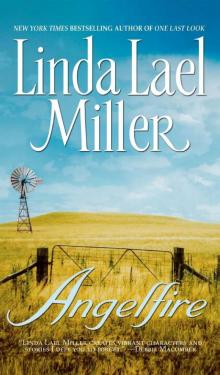 Angelfire
Angelfire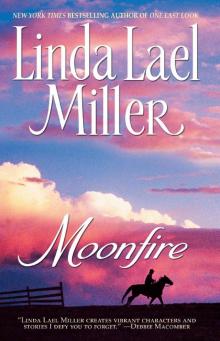 Moonfire
Moonfire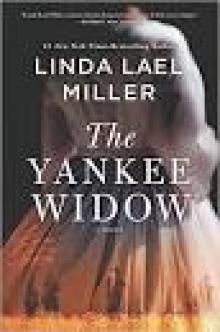 The Yankee Widow
The Yankee Widow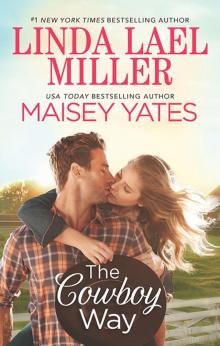 The Cowboy Way
The Cowboy Way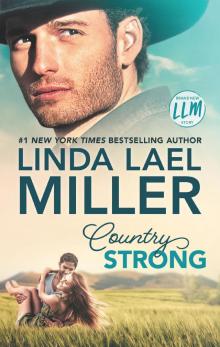 Country Strong--A Novel
Country Strong--A Novel Forever and a Day
Forever and a Day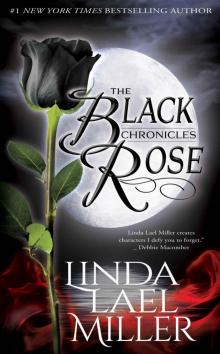 The Black Rose Chronicles
The Black Rose Chronicles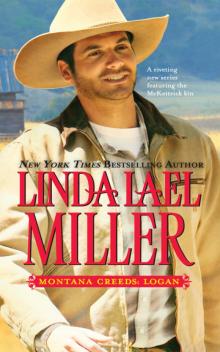 Montana Creeds: Logan
Montana Creeds: Logan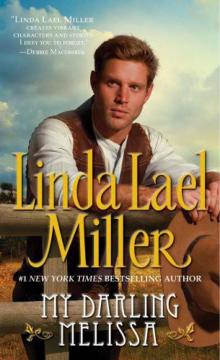 My Darling Melissa
My Darling Melissa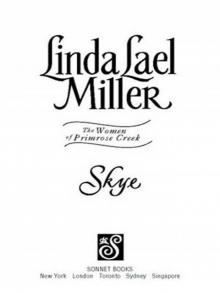 Skye
Skye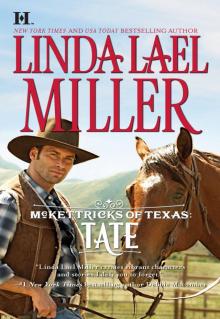 McKettricks of Texas: Tate
McKettricks of Texas: Tate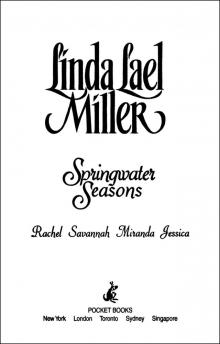 Springwater Seasons
Springwater Seasons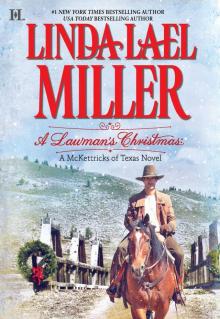 A Lawman's Christmas
A Lawman's Christmas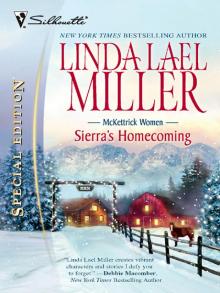 Sierra's Homecoming
Sierra's Homecoming![Parable, Montana [4] Big Sky Summer Read online](http://i1.bookreadfree.com/i/03/22/parable_montana_4_big_sky_summer_preview.jpg) Parable, Montana [4] Big Sky Summer
Parable, Montana [4] Big Sky Summer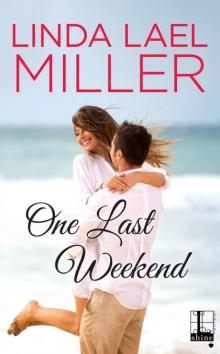 One Last Weekend
One Last Weekend A Stone Creek Collection, Volume 2
A Stone Creek Collection, Volume 2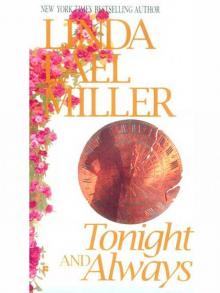 Tonight and Always
Tonight and Always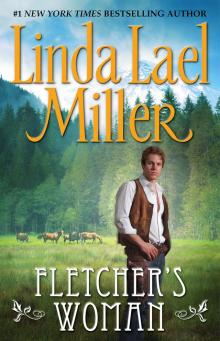 Fletcher's Woman
Fletcher's Woman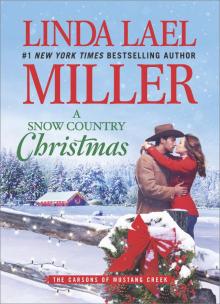 A Snow Country Christmas
A Snow Country Christmas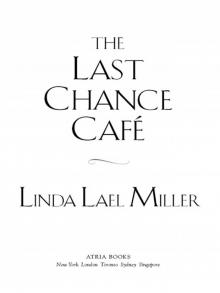 The Last Chance Cafe
The Last Chance Cafe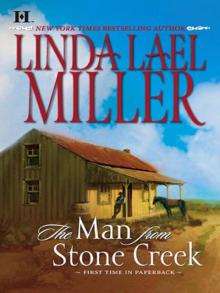 The Man from Stone Creek
The Man from Stone Creek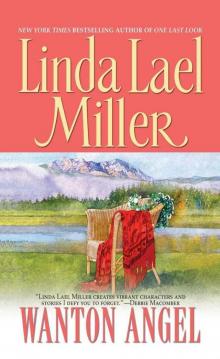 Wanton Angel
Wanton Angel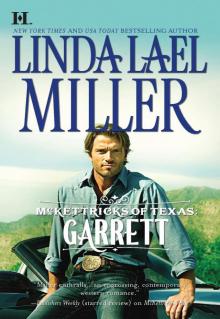 McKettricks of Texas: Garrett
McKettricks of Texas: Garrett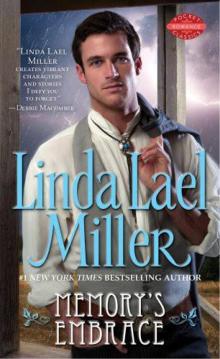 Memory's Embrace
Memory's Embrace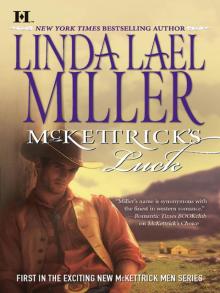 McKettrick's Luck
McKettrick's Luck Pirates
Pirates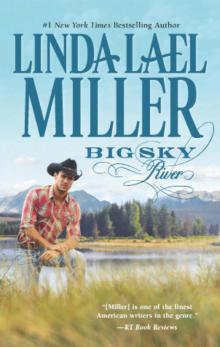 Big Sky River
Big Sky River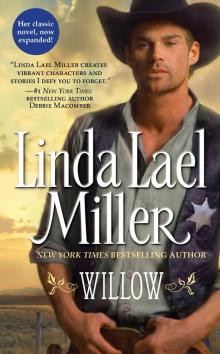 Willow: A Novel (No Series)
Willow: A Novel (No Series)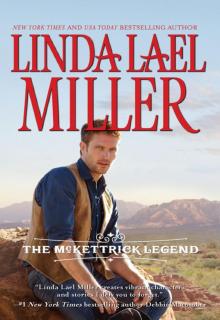 The McKettrick Legend: Sierra's HomecomingThe McKettrick Way (Hqn)
The McKettrick Legend: Sierra's HomecomingThe McKettrick Way (Hqn)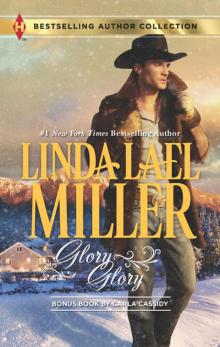 Glory, Glory: Snowbound with the Bodyguard
Glory, Glory: Snowbound with the Bodyguard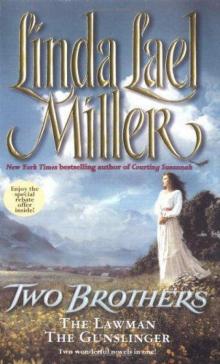 Two Brothers
Two Brothers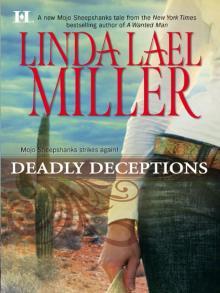 Deadly Deceptions
Deadly Deceptions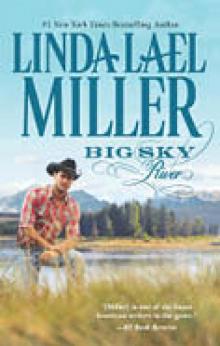 Big Sky Secrets
Big Sky Secrets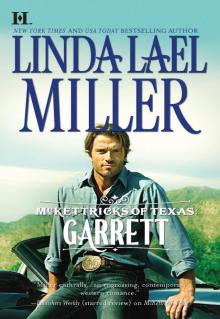 Garrett
Garrett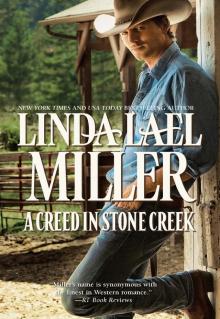 A Creed in Stone Creek
A Creed in Stone Creek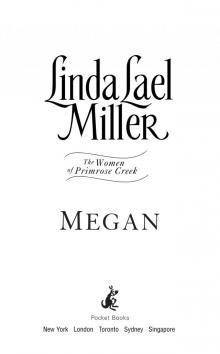 Megan
Megan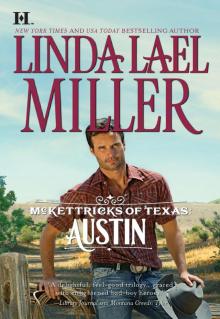 McKettricks of Texas: Austin
McKettricks of Texas: Austin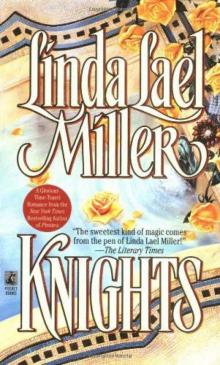 Knights
Knights High Country Bride
High Country Bride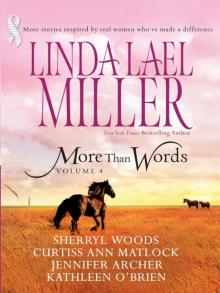 More Than Words Volume 4
More Than Words Volume 4 Glory, Glory
Glory, Glory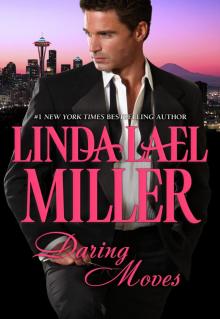 Daring Moves
Daring Moves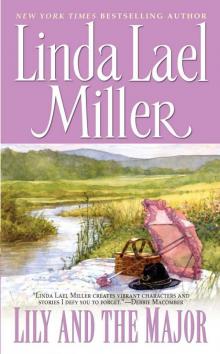 Lily and the Major
Lily and the Major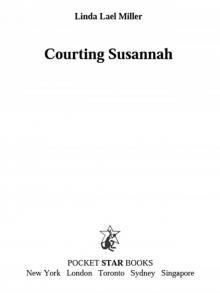 Courting Susannah
Courting Susannah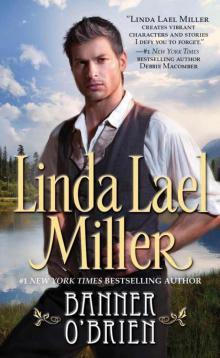 Banner O'Brien
Banner O'Brien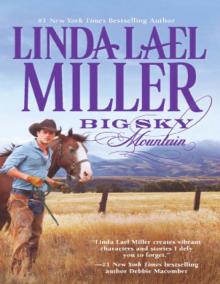 Big Sky Mountain
Big Sky Mountain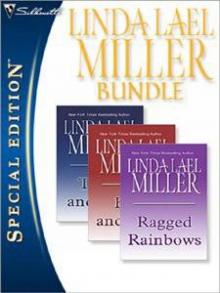 Linda Lael Miller Bundle
Linda Lael Miller Bundle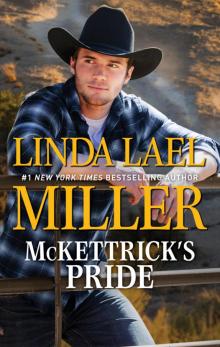 McKettrick's Pride
McKettrick's Pride A Stone Creek Collection Volume 1
A Stone Creek Collection Volume 1 A Wanted Man
A Wanted Man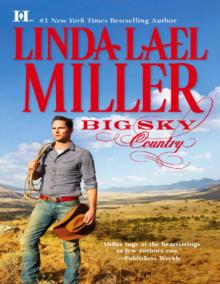 Big Sky Country
Big Sky Country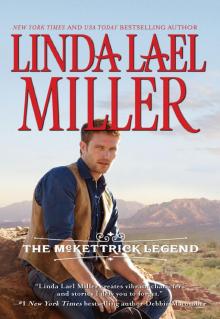 The McKettrick Legend
The McKettrick Legend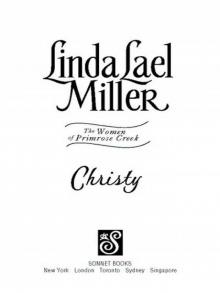 Christy
Christy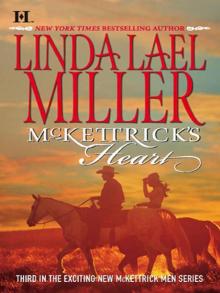 McKettrick's Heart
McKettrick's Heart Resurrection
Resurrection Arizona Heat
Arizona Heat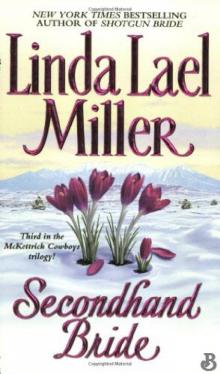 Secondhand Bride
Secondhand Bride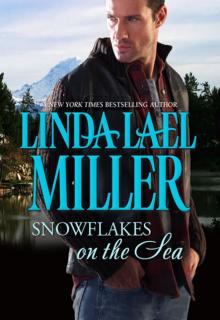 Snowflakes on the Sea
Snowflakes on the Sea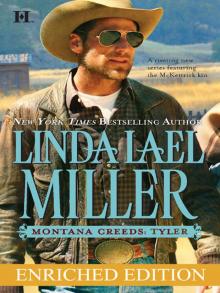 Montana Creeds: Tyler
Montana Creeds: Tyler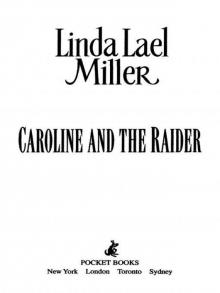 CAROLINE AND THE RAIDER
CAROLINE AND THE RAIDER A Proposal for Christmas: State SecretsThe Five Days of Christmas
A Proposal for Christmas: State SecretsThe Five Days of Christmas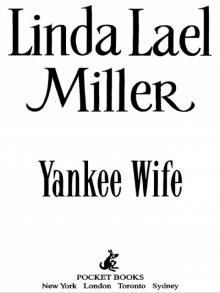 Yankee Wife
Yankee Wife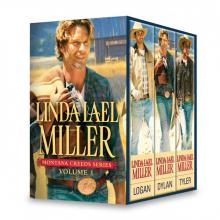 Linda Lael Miller Montana Creeds Series Volume 1: Montana Creeds: LoganMontana Creeds: DylanMontana Creeds: Tyler
Linda Lael Miller Montana Creeds Series Volume 1: Montana Creeds: LoganMontana Creeds: DylanMontana Creeds: Tyler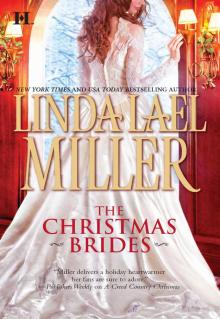 The Christmas Brides
The Christmas Brides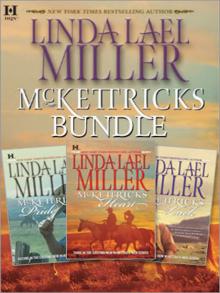 McKettricks Bundle
McKettricks Bundle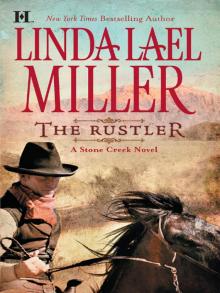 The Rustler
The Rustler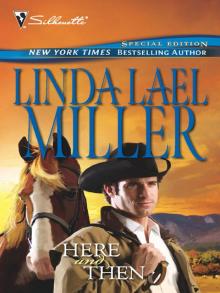 Here and Then
Here and Then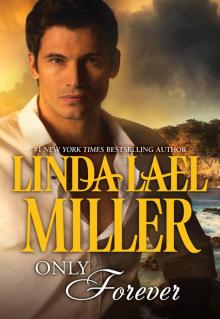 Only Forever
Only Forever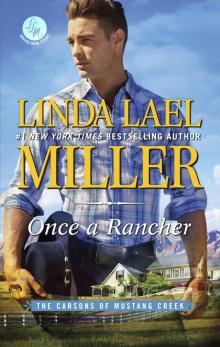 Once a Rancher
Once a Rancher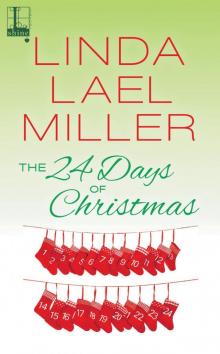 The 24 Days of Christmas
The 24 Days of Christmas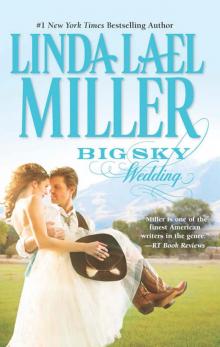 Big Sky Wedding
Big Sky Wedding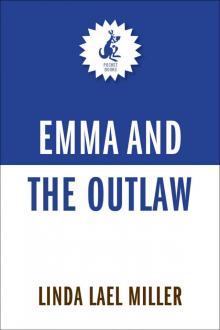 Emma and the Outlaw
Emma and the Outlaw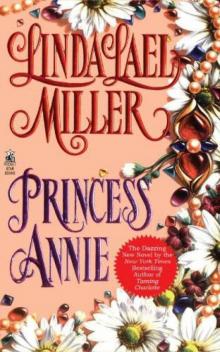 Princess Annie
Princess Annie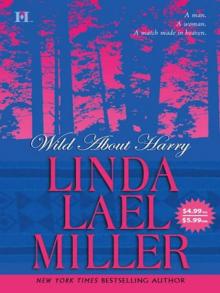 Wild About Harry
Wild About Harry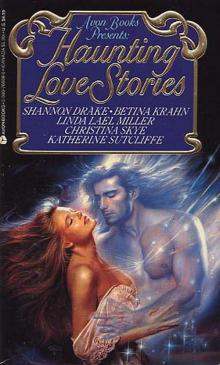 That Other Katherine
That Other Katherine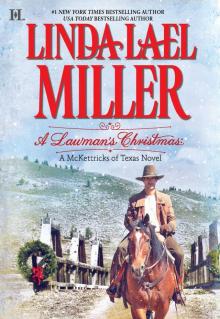 A Lawman's Christmas: A McKettricks of Texas Novel
A Lawman's Christmas: A McKettricks of Texas Novel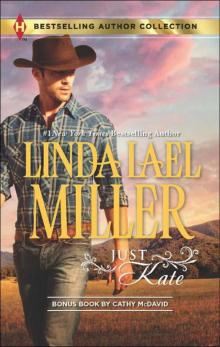 Just Kate: His Only Wife (Bestselling Author Collection)
Just Kate: His Only Wife (Bestselling Author Collection)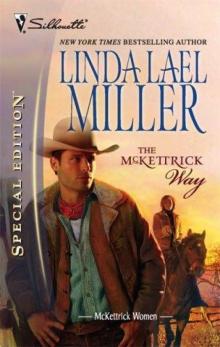 The McKettrick Way
The McKettrick Way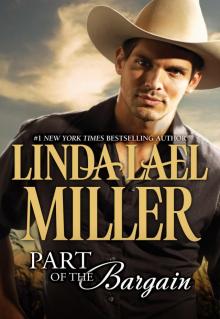 Part of the Bargain
Part of the Bargain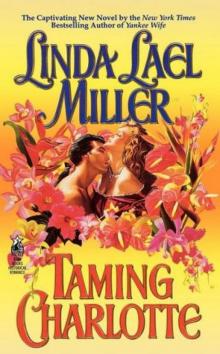 Taming Charlotte
Taming Charlotte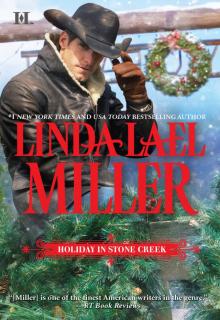 Holiday in Stone Creek
Holiday in Stone Creek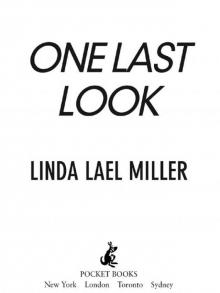 One Last Look
One Last Look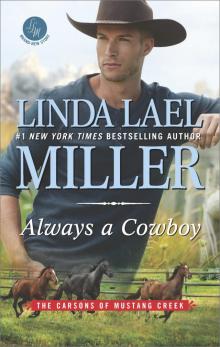 Always a Cowboy
Always a Cowboy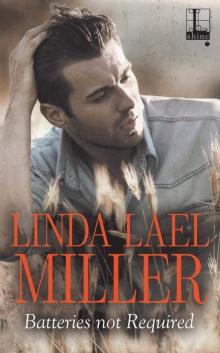 Batteries Not Required
Batteries Not Required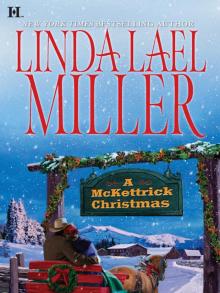 A McKettrick Christmas
A McKettrick Christmas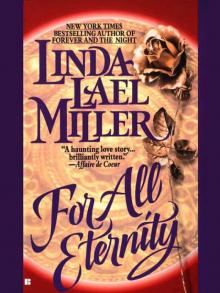 For All Eternity
For All Eternity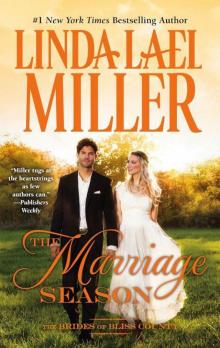 The Marriage Season
The Marriage Season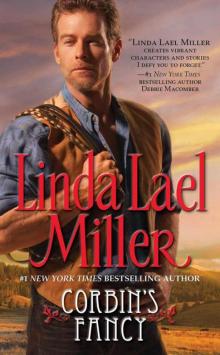 Corbin's Fancy
Corbin's Fancy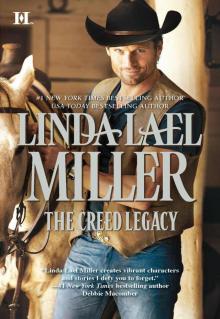 The Creed Legacy
The Creed Legacy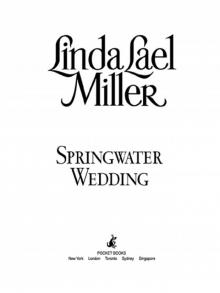 Springwater Wedding
Springwater Wedding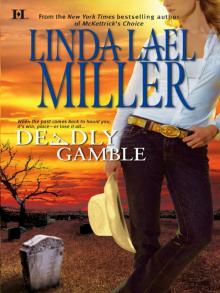 Deadly Gamble
Deadly Gamble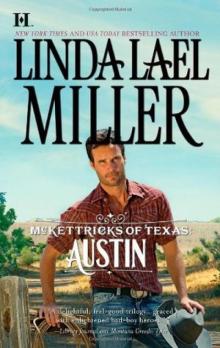 Austin
Austin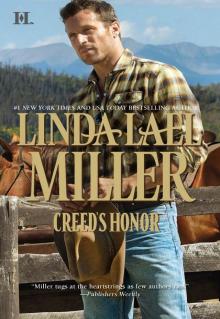 Creed's Honor
Creed's Honor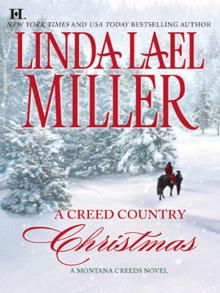 A Creed Country Christmas
A Creed Country Christmas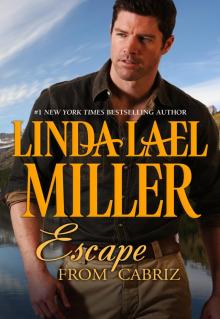 Escape from Cabriz
Escape from Cabriz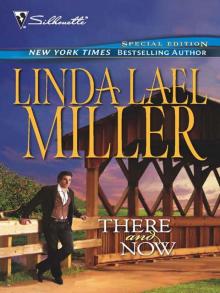 There and Now
There and Now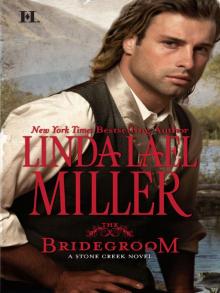 The Bridegroom
The Bridegroom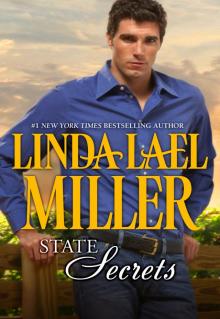 State Secrets
State Secrets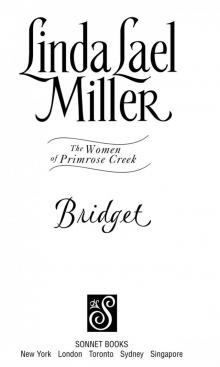 Bridget
Bridget